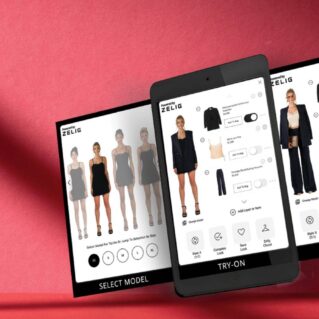More than half of America is on board with podcasts. But what does it mean for direct selling?
Video may be taking over the internet, but voice and audio are carving out a huge piece of the future of online marketing. With the rise of voice-activated assistant devices such as Amazon Eco and Google Home, people are becoming more accustomed to consuming audio content on multiple devices. Although podcasts are nothing new, they are skyrocketing in popularity, becoming a preferred medium in the battle for online attention.
What’s Happening:
A study by Edison Research, published in March, showed that more than 50 percent of Americans 12 years and older have listened to a podcast. That’s up from 40 percent in 2017. One-third of the U.S. population has listened to a podcast in the last month. That’s 90 million monthly listeners. Also, more than half of Americans say they use YouTube specifically for listening to music.
“This is a watershed moment for podcasting—a true milestone,” claims Tom Webster, senior vice president at Edison Research. “With over half of Americans 12-plus saying that they have ever listened to a podcast, the medium has firmly crossed into the mainstream.”
With so much attention shifting to podcasts, big money is following. According to PwC’s Global Entertainment & Media Outlook 2019–2023 report, podcast advertising revenues are estimated to reach $1.6 billion by 2022. That would be an increase from roughly $700 million in 2018.
“I’m convinced: podcasting is one of the most valuable tools for growing a business,” says Pat Flynn, host of the Smart Passive Income podcast, which has more than 50 million downloads.
Some of the direct selling industry’s favorite speakers, trainers and thought leaders have a regular podcast with at least one fresh episode per week. This includes Tony Robins, Tim Ferriss, Eric Worre, Chalene Johnson, Gary Vaynerchuk, John Maxwell and plenty more.
“I’m convinced: podcasting is one of the most valuable tools for growing a business.” —Pat Flynn, Smart Passive Income Podcast Host
One of the main reasons for the podcast boom is the ability for people to listen while doing other tasks, such as driving, working out, working at a desk, or just doing chores around the house. When podcasts first started to catch on, listeners accessed them on PCs, then mobile devices such as iPods. Now, they can be streamed or downloaded on tablets, smartphones and virtual assistant speakers so listeners can pick up an episode on the go wherever they left off.
Some of the most popular podcast platforms include iTunes, Podbean, Blubrry and Soundcloud. Some creators choose to host and upload their episodes on multiple platforms.
 Why It Matters To Direct Selling:
Why It Matters To Direct Selling:
Podcasts are an underutilized medium in direct sales, but one that can’t be ignored. Most of today’s activity within the industry comes from individual distributors, with few corporate teams developing their own podcasts.
The focus is on attracting a target audience with educational or entertaining content. Examples are educating about a product category, talking about interesting topics, interviewing experts or interviewing successful field leaders.
“Your podcast content should not be about you, but about solving your prospects’ problems,” says journalist and podcast producer Steve Lubetkin.
A great industry example is the official Isagenix podcast (IsagenixPodcast.com). The platform has three main categories: Wealth Creation, Science Talks and Transforming Lives.
The Wealth Creation episodes tell distributor success stories, cover the value of attending events and detail tips on growing the business. Episodes in Science Talks interview doctors and nutritionists, cover relevant health issues such as gut health and dive a little deeper into why the products work. The Transforming Lives section shares stories of how the products and business are impacting the lives of people from all different backgrounds.
Expert Summary:
“Every company can find authentic stories related to their brands, whether those stories are revealed through interviews, investigations, or real-life demonstrations. With some serious thought about what kind of stories your brand can tell and a commitment to honesty, you have what you need to begin making an engaging podcast, no matter what industry you’re in,” says Nicole D’Angelo, associate editor of Skyword.



